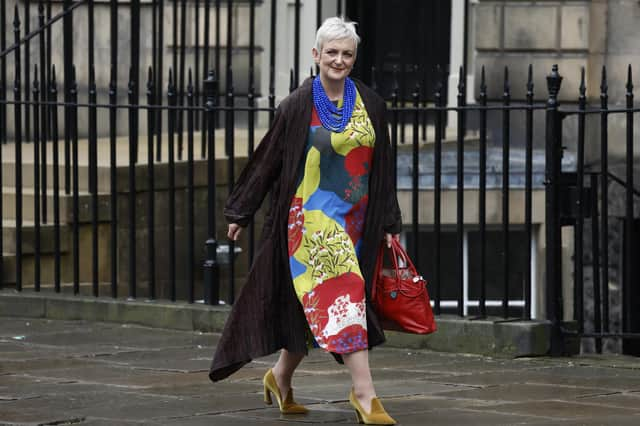Child-rapist Sean Hogg's community sentence must be appealed or it will send a dangerous message that the ‘first time’s free' – Susan Dalgety


He was a junior counsel to the inquiry into the Dunblane Primary School shootings, where 16 children were slaughtered. He was part of the prosecution team at the Lockerbie bombing trial. More recently, he was senior counsel to Lord Hardie’s inquiry into the Edinburgh Tram project, and last May he was appointed a senior judge. His legacy was assured – until, that is, last Monday, when he allowed a convicted rapist to walk free from court.
Lord Lake, as he is now, decided that 21-year-old Sean Hogg, who had raped a vulnerable child in Dalkeith Country Park four years ago, was too young to go to prison. In his sentencing notes, obtained by BBC Scotland, the experienced lawyer acknowledged that rape is “one of the most serious crimes” and that the impact on Hogg’s young victim would be “marked and long-lasting”. But he then went on to say that rehabilitation was the “primary consideration” and handed Hogg a sentence of 270 days of unpaid work instead of prison.
Advertisement
Hide AdAdvertisement
Hide AdNo doubt as he freed Hogg to begin his sentence in the community, Lord Lake thought he had been scrupulously fair-minded in his judgment. After all, he was simply following new guidelines introduced by the independent Scottish Sentencing Council last year, which state that there should be a presumption against prison for law-breakers under 25 years old, as the brain is not “fully developed” until the age of 26.
Guidelines that had been welcomed by the then Justice Secretary Keith Brown, who said when they were introduced that they “complement the Scottish Government’s vision for youth justice”, adding “it is proper, smart justice being administered”. Proper. Smart. Justice. A man rapes a child, and his only punishment is to be ordered to paint a community hall or clear some ground. It may be a ‘proper’ sentence, according to the new guidelines. It may be considered a ‘smart’ decision by legal experts. But ‘justice’ it is not.
Rape is no ordinary crime. Women and girls have a visceral fear of sexual assault throughout our lives. Writing in the Times this week about single-sex spaces, Jenni Russell summed up the everyday reality of women’s physical vulnerability. “Decent men don’t realise how constantly wary women have to be of the small percentage of men who would assault them if they could,” she wrote. “They have no idea how vigilantly women have to move through the world, alert to flashers, stalkers, gropers, men who track behind them as they run, block their path on winter evenings, drug their drinks, stick hands up their skirts in crowded concerts.” Or rape them in a country park, she might have added.
Women and girls rely on the justice system to protect them from the flashers, gropers and rapists. We depend on the police to investigate complaints thoroughly and with compassion. We expect the Crown Office to prosecute offenders and judges to sentence them appropriately if they are convicted.
But, at every turn, we are let down. The figures speak for themselves. In 2020-21, more than 2,000 rapes and attempted rapes were reported to the police. Only 152 went to court. Just 78 ended with a conviction – 3.5 per cent. The odds are stacked against us from the moment a sexual predator makes his first move.
And now it seems that even the small number of rapists who are convicted each year have a ‘get out of jail free’ card if they are under 25. “Young Scottish men are effectively being told ‘first time’s free,’” tweeted author JK Rowling, barely able to contain the rage that every woman felt this week at Hogg’s sentence.
Sandy Brindley, chief executive of Rape Crisis Scotland, spoke up too, saying that she was shocked that Hogg had not received a custodial sentence. “Given the gravity of this crime and the fact it was tried at the High Court, this sentence appears to us to be worryingly lenient,” she said.
But from Scotland’s new Justice Secretary and former social worker, Angela Constance, there was silence. Silence too from Siobhan Brown, the newly appointed minister for victims and community safety, though she did tweet last weekend that she promised to “work tirelessly to address the needs and concerns of victims of crime and their families”.
Advertisement
Hide AdAdvertisement
Hide AdMinister, there is one victim whose needs and concerns require your urgent attention. The girl who, when barely a teenager, was brutally raped and then had to endure a four-year wait before her attacker was brought to justice, only to watch him escape prison because his rehabilitation was considered to be paramount.
And there is one woman who could restore a little confidence in the justice system. The Lord Advocate, Dorothy Bain, the Scottish Government’s senior legal adviser and a member of the Cabinet, can appeal Hogg’s sentence if she considers it ‘unduly lenient’ – that is, if it falls outside the normal range of sentences a judge could have considered.
The normal sentence for rape is imprisonment. More than 95 per cent of those convicted are sent to prison, with an average sentence of seven years. A sentence of 270 hours of ‘unpaid work’ must surely meet the criteria for an appeal. If this sentence goes unchallenged, Lord Lake’s decision will set a precedent for the punishment of young men guilty of rape and sexual assault. Scotland will not have a ‘smart’ justice system. It will have one that puts the welfare of rapists before the needs of their victims.